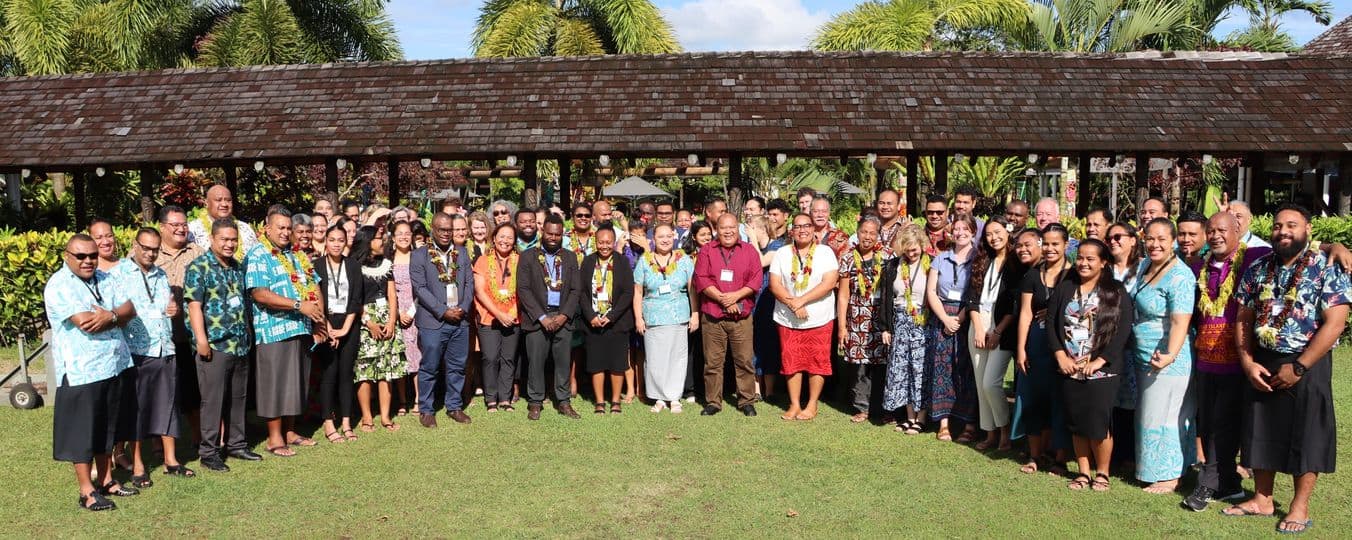Pacific people are increasingly suffering loss and damage from superstorms breaking records each year; sea level rise eating away villages and arable land; ocean acidification dissolving our reefs; increasing sea surface temperatures bleaching our corals and sea grasses; landslides that erase entire villages and plantations and flooding that destroys urban infrastructure among other impacts.
This was the statement made by Vanuatu’s Minister for Climate Change, Ralph Regenvanu, at the first Loss and Damage Dialogue in Apia, Samoa this week.
The three-day dialogue brings together government, civil society, academia, NGOs and the private sector to collectively discuss experiences with loss and damage in the Pacific and options to address loss and damage in the region. It will also determine the Pacific’s position on the issue at COP28 in Dubai this November.
Regenvanu, who is also the Pacific’s new Political Champion for L&D, emphasised: “Although we have long been calling for action, Loss & Damage has only now taken centre stage in the global efforts to address the existential issue of Climate Change. For more than five decades, science has been providing stark warnings about the chemical and physical consequences of greenhouse gas emissions.
“Sadly, the short sighted and economically driven policies of many States meant that little heed was paid to the steps required to avert the climate emergency. Inadequate action and support was mobilised by responsible parties to minimise growing impacts here in the islands, and levels of adaptation are now woefully insufficient.
“The political denigration of climate science was on full display at the UN Climate Negotiations in Germany last month, as Parties refused to acknowledge that the Intergovernmental Panel on Climate Change – the IPCC’s AR6 Report is the most comprehensive and robust assessment of climate change that we have, and that we must act on its messages to limit warming to 1.5°C.
“This result of inaction is climate harm to those not responsible; climate suffering that is being experienced right now by every community, household and person in the Pacific islands.
In Vanuatu, Regenvanu said loss and damage is a lived reality. A few months ago, Vanuatu was hit by two Category 4 Cyclones within three days. It forced the declaration of a State of Emergency for the Pacific nation.
“This is unjust as we are not responsible for the greenhouse gas emissions that are causing this crisis,” he said. “Friends, today loss and damage is not just a Pacific problem. What we are experiencing now, and have faced for many years, we see the rest of the world beginning to feel.
“We empathise deeply with the people of Canada as their entire nation burns with wildfire, we empathise with Europe, the U.S and Asia as crippling heat-waves kill elderly and the poor, we empathise with the people of Italy and Korea as flooding over the last week has destroyed homes and taken lives. This is the reality of loss and damage, in the Global North and South, in the rich and poor countries, and I hope that the world has sufficient collective courage to turn this canoe around.”
Regenvanu said as conversations progress around Loss and Damage, it is important that Pacific voices are at the centre of the discussion.
“We’re already experiencing losses on our islands at the very basic level with shorelines disappearing, with livelihoods being impacted by increasing temperatures in our ocean and in our air and also with our disappearing islets,” Kathy Jetnil-Kijiner, the Climate Change Envoy of the Marshall Islands, reiterated.
“I think as a coral atoll nation that is only two metres above sea level, we experience loss and damage on a very visceral level. We fear we are seeing the entire disappearance of our islands.”
For the Marshall Islands, the two key priorities are the slow onset events, as well as non-economic losses. While loss and damage impacts land physically, it also has impacts on cultural heritage.
“The Marshall Islands prioritises our culture and the preservation of our culture which is deeply tied to land so when that land disappears, the cultural knowledge that is tied to that land also disappears. In the Pacific, we all value our culture…. we have the opportunity to capitalise on the loss and damage fund to help support the preservation and revitalisation of our cultures,” said Jetnil-Kijiner.
